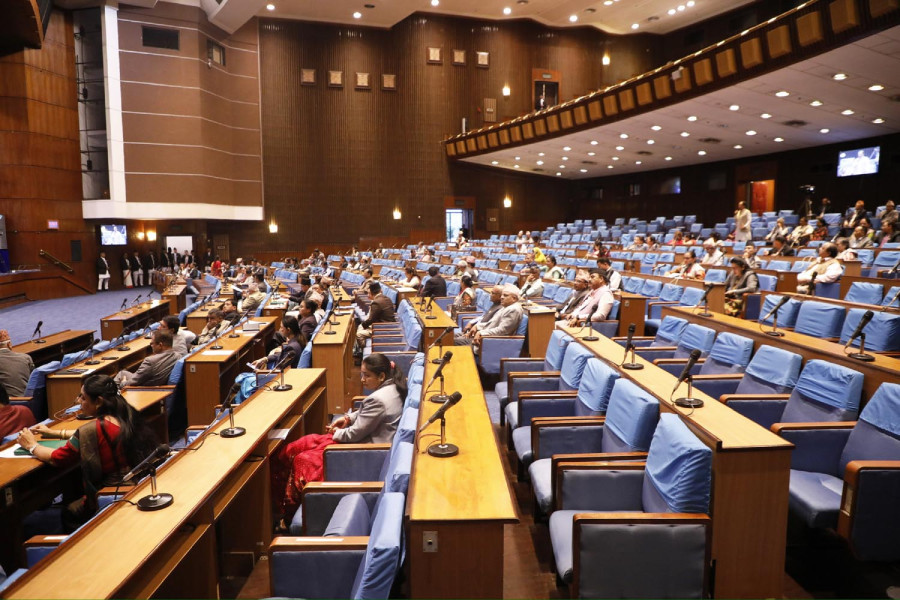Politics
Committees’ slow work may give Parliament little business
There are more than a dozen bills for the mini houses to pass but except one, they are still hodaying.
Post Report
Despite commitments from major political parties, parliamentary committees have not been active even after the completion of festive seasons.
Amid fears the winter session of the federal parliament could be without adequate business, Speaker Devraj Ghimire, on October 22, urged the chief whips of the major parties and House committee chairs to finalise the pending bills and forward them to the House of Representatives. Everyone agreed.
Two weeks have passed but the parliamentary committees have yet to start proper discussions on the pending bills. Except for the Finance Committee, it is unsure when other House committees will return to business. The lower house has 10 thematic committees apart from two joint committees with the National Assembly.
In parliamentary democracy, the ruling parties are responsible to ensure the House adequate business and its effective functioning. And most of the House committees are chaired by lawmakers from the ruling parties.
Mahesh Bartaula, the CPN-UML chief whip, agrees that the mini parliaments have not been as effective as expected. “Lawmakers visiting their constituencies during festivals tend to return late,” he said. “Now with all the festivals over, we will ask our lawmakers to pay due attention to discussing the pending bills.”
According to the records of the Parliament Secretariat, five House committees are sitting on 15 different bills, some of which are essential for a full-fledged implementation of federalism.
Five bills are under consideration of the Finance Committee, while the State Affairs and Good Governance Committee has four bills to decide on. Similarly, the Infrastructure Development Committee; Education, Health and Information Committee; and Law, Justice and Human Rights Committee also have at least one bill to discuss and finalise.
Not just are the House committees dormant, but the government also hasn’t registered a single bill for three months. Despite reiteration from Minister of Home Affairs Ramesh Lekhak, the government hasn’t registered a bill to amend the Nepal Police Act. Similarly, the government has also been claiming to table a bill to amend the Political Parties Act and a bill to replace existing civil aviation law.
A study report by the Legislation Management Committee of the National Assembly last year found that only 111 of the 151 laws needed to implement the constitution promulgated by the Constituent Assembly in 2015 have so far been enacted. Still, 40 Acts need either major amendments or replacement with new ones to sync them with the statute, according to the study.
“As far as I know, some of the new bills will be registered in Parliament before the commencement of the new session,” said Bartaula. Generally winter session, also called the bill session, is summoned in December.
“The federal parliament will be without adequate business in the winter session if the House committees continue to delay the endorsement of the pending bills and the government doesn’t come up with new bills,” said an official at the Parliament Secretariat.
The federal parliament's budget session was prorogued on September 17, weeks before the festive season began, in the lack of adequate business.
The President summons a Parliament session on the government’s recommendation. There cannot be a gap of over six months between two House sessions. As the budget session was prorogued on September 17, the winter session must be called by March 16. The winter session last year was convened in February.
In the budget session, the lower house endorsed five bills, including the long-pending amendment to the transitional justice Act, in addition to the budget-related bills. As many as 56 meetings of the House were held in 53 days, and the session continued for 130 days. In addition to eight governmental bills, one non-governmental bill was also registered in the House during the session.




 13.12°C Kathmandu
13.12°C Kathmandu














